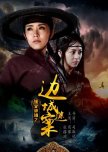
Lady Detective Shadow
3 oamenii au considerat această recenzie utilă
"A tiger's daughter is no kitten indeed"
Lady Detective Shadow was a low budget Dragon Gate Inn adjacent movie. The fights, story, and sets were the equivalent of a mediocre Cdrama. What it did have going for it was a competent female lead, a former royal constable, ousted by an evil, powerful eunuch during the chaotic times of the Ming Dynasty.Sima Fei Yan and her sidekick Yezi head to Shacheng in search of the bandit Lu Jiang. Lu Jiang and numerous sects and bandits are headed there in search of the mysterious treasure that reveals itself every 49 years in the desert. Everyone converges on a rundown inn where death is a familiar guest. Official Song and his servants wind up in pieces out in the woods giving Fei Yan another case to solve. Helping her is the local official, Wu Ping, a friend of her late father.
This film had an adequate story and acting though the logic during the final quarter of the film fell apart. The fights were shot for people with no kung fu skills with lots of obvious cuts, sped up and slowed down action, and wire work. The bare minimum was put into the sets and CGI. Shang Rong did her best with the Sherlockian, unemotional role of the brilliant detective.
If you have nothing else to watch except for this film, it’s not an awful way to spend 90 minutes if you keep your expectations as low as a buried city in the desert.
15 July 2024
Considerați utilă această recenzie?
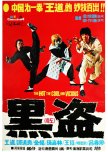
Hot, Cool and Vicious
3 oamenii au considerat această recenzie utilă
"No one can beat me"
Dorian “Flash Legs” Tan and Don Wong teamed up to take on an evil counterfeiter in Hot, Cool, and Vicious. This Taiwanese kung fu flick surpassed my expectations, albeit they were very low to begin with. Not gifted with the budget of a Shaw Brothers production, director Lee Tso Nam and martial arts director Gam Ming made the most of what they had, namely Dorian Tan’s excellent kicks.Capt. (Northern Leg) Lu takes care of the law and order in a village run by Mayor Yuen. When Yuen’s son commits a murder the two men clash. Southern Fist Pai Yu Ching, a known killer, arrives in town with his buddy Tieh and begins working for Yuen. Newly arrived Miss Lee and her uncle bear a grudge against Lu. Before long everyone seems to be trying to hire Pai to kill Lu.
There were no secret lists or manuals, but there were plenty of hidden identities and subterfuge. The plot led to the fights nicely. Gam Ming’s choreography utilized the cast’s abilities and those with lesser abilities well. Speaking of Gam Ming (aka Tommy Lee), he showed up in the final act as the dangerous golden haired albino fighter. Dorian’s kicks are always a joy to watch and the choreography showed them off splendidly. There was a modicum of wire-fu when characters did some high jumping but it was kept to a minimum. Sun Chia Lin even got in on the fighting. Most of the action was fairly fast though there were some glaring misses. The final fight was worth the price of admission.
Dorian Tan and Don Wong made for a fun dynamic duo as they took on Gam Ming and a host of minions led by Phillip Ko Fei, Li Chiang, and Lung Fong. If you enjoy old kung fu movies, especially the low budget Taiwanese flicks, this is one to try.
10 July 2024
Considerați utilă această recenzie?
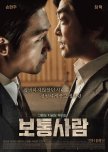
"It ends fast if you stay still"
What will an Ordinary Person do in the face of poverty and corruption? Will an Ordinary Person fight for the children’s future at the cost of his own? What would an Ordinary Person do for his child’s health and future? Set in Seoul during the turbulent 1980’s, two ordinary men would have to decide how much of themselves they could give away and whether they could do something extraordinary.Kang Sung Jin is a police detective barely making ends meet with a mute wife and a son who needs an operation on his leg. Providence seems to reach out and touch him when Choi Kyoo Nam of the Intelligence Agency gifts him an envelope containing evidence of a serial killer. The killer just happens to be in Sung Jin’s jail cell. It’s up to Sung and his partner to gather the witnesses and coerce a confession from Kim Tae Sung. It’s not long before his friend and reporter Chu Jae Jin, points out conflicting evidence putting Sung Jin in not only an ethical dilemma but both men in a life and death one.
The events in the movie lead up to the 1987 Defense of the Constitution and demonstrations. Torture and forced confessions were business as usual. Jang Hyuk’s Choi Kyoo Nam was ruthless and saw those beneath him as mere dogs which he could order to do his bidding. If they faltered, he would just make dog stew out of them. The Intelligence Agency had its tendrils everywhere.
Ordinary Man forced its characters to dig deep and make diligent and dangerous decisions. Like in an old Kaiju movie, the monster didn’t truly reveal himself until the forty-minute mark. The film could have used some trimming to narrow down the story and focus. It started out with a comedic chase, but anyone who has watched Korean movies knows better than to take that bait, it’s never long before the pain sets in.
Sung Jin found that once you did the devil’s bidding, there was no turning back. A new car, money to spend, an operation for his son all seemed like a dream come true until it became a nightmare of agonizing ethical choices. Choices had consequences, terrible irrevocable consequences. This was not an action movie, and only the framework had to do with the pervasive corruption in society. At its heart, the film asked what would an ordinary man do when faced with dire moral challenges never knowing if his choices would change anything for the better or if he’d be able to live with them.
"If I don't fall, no one can knock me down."
5 July 2024
Considerați utilă această recenzie?

Deadly Confrontation
3 oamenii au considerat această recenzie utilă
"Your kung fu is good but you can't stop bullets"
Deadly Confrontation was a below average Taiwanese kung fu flick with low wattage star power. Chia Ling, Lo Lieh, and Yueh Hua had top billing but the actual leads in the movie were Liang Hsiu Shen and Pai Ying.Mah returns home after three years in jail. He had been framed by his enemy Sung Teng Wai, the local warlord. While he was away his girl married Sung’s son. Hot headed Mah has nothing but revenge on his mind. Sung has no intention of letting Mah live long enough to reach that goal. Chow Sun arrives in town looking for a job and after beating most of Sung’s men is put in charge of the casino. Mah and his friends find themselves up against formidable forces, especially when it turns out Sung is also processing opium on the side!
Everything about this film was below average with a less than charismatic cast. Liang and Pai were adequate but didn’t command attention. Chia Ling had very little to do and was finally rewarded with one fight. Lo Lieh popped in to fight with Pai Ying. Finally, Yueh Hua showed up near the end of the film as another bad guy. The fights were okay. Guns were also used, something I don’t care for in martial arts films. The editing was abysmal. People who were about to be killed showed up later without a scratch on them. I don’t count off for cropped edges and wear and tear on the film, but it could be distracting. Typical of Taiwanese films from this era, much of the fighting took place out in nature.
This kind of film is the hardest to write a review on because it was so bland and poorly put together. Deadly Confrontations was far from the worst old kung fu film I’ve watched but far from the best as well.
27 June 2024
Considerați utilă această recenzie?

Pieces of Memories
3 oamenii au considerat această recenzie utilă
"Oh how lovely, oh how sweet"
Pieces of Memories was a whimsical and touching look at how memories shape our perception of life. Ku Hye Sun perhaps best known for playing Jan Di in Boys Over Flowers wrote and directed this short film. I read she also wrote the music for the haunting song that played throughout the film.The film begins with an older man lamenting that his future is uncertain. He has tried to conduct his life, but found that not everything could be controlled. As he sits down at the piano, a portrait comes to life to direct the music and memories displayed. Time rewinds and his life is shown through his years at the keyboard.
What comforts us in difficult times and as our life draws to a close are the cherished memories of loved ones. While we cannot control much of what happens in life, we can control how we frame those thoughts. Love lives on and the sweetness of it enriches the moments that pass and heals the losses we suffer.
Ku’s music was both melancholy and uplifting, much like this short film. It reminded us that even when we haven’t visited our memories for some time, they are still waiting on us like old friends. This short film was an inspiration to live life to the fullest and to take every opportunity to make sweet memories.
“Our moments together
Days we share together
Now melt down in my teary eyes
Hurting, dampening, distancing
O how lovely, O how sweet
My immortal love that you are”
19 June 2024
Considerați utilă această recenzie?

Chicken Rhapsody
3 oamenii au considerat această recenzie utilă
Clucking good!
Chef Baek Jong Won returned, this time to guide us through Korea’s obsession with the beloved yard bird on Chicken Rhapsody aka Korean Fried Chicken Rhapsody. With streets named after area specialties and fried chicken restaurants seemingly everywhere, the Koreans take chicken very seriously combining tradition with innovation in order to create nearly limitless variations to delight and challenge their taste buds.Despite Netflix’s title, only the first episode focused on fried chicken. Baek and his guests did a deep dive into the history of fried chicken and the major turning points for the popular dish. Fried chicken took off in the 1970’s as chickens and cooking oil became more readily available. The initial restaurants were influenced by American fried chicken but it didn’t take long for the Koreans to say, “hold my beer” and put their own delicious spin on the dish with a wide variety of sauces for the juicy and crispy chicken pieces to be tossed in. I did love the trivia bit regarding Kentucky Fried Chicken’s introduction in the 1980’s. Not only did the American chain show the benefits of brining, but it was also popular with women of all ages because they could finally order chicken legs for themselves which were often gobbled up by the men in their lives when meals eaten elsewhere only came with two.
Episode 2 explored other dishes, such as rotisserie and barbecued chicken. Baeksuk, Sujeunggye, Spicy Stir-fried Chicken, and Cauldron Lid Spicy Braised Chicken all had their moments of attention. None of the bird goes to waste as cooks through the years have developed new ways of serving offal in addition to the more favored parts. The show also discussed the efforts to restore native birds, including the long-tailed chicken.
With over 40,000 fried chicken shops, it's safe to say that Koreans love the crispy delights. And why wouldn’t they? Whether it’s for dinner, celebrating, or winding down with co-workers at the end of the week, they eat around one billion chickens a year. There are streets throughout market districts named after the specialty dish served to happy customers from Braised Chicken Street to Chicken Feet St! Fried, braised, stir-fried or cooked on a cauldron lid over a fire, there was no shortage of styles. Too hot for chicken soup? There is no such thing! The hotter the day the more bowls of scalding soup that are sold!
If you’ve ever watched a Kdrama with the characters eating fried chicken and wondered what went into making the tasty morsels, look no further. Baek and friends not only showed the different methods used, but the history and how cooks create their own unique and mouthwatering styles of preparing the popular bird. Per usual, this series produced a quality program showing the love and imagination that goes into preparing both traditional and cutting edge cuisine.
15 June 2024
Considerați utilă această recenzie?
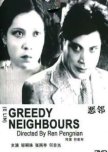
Greedy Neighbours
3 oamenii au considerat această recenzie utilă
"Better to be broken jade than cheap tile intact"
This forty-one minute film fragment managed to fit in lots of Greedy Neighbors. This was one of director Ren Peng Nian’s early films which also starred his wife, Wu Li Zhu. Originally, the film was around 100 hundred minutes, but enough frames survived to get the gist of the story.Hua Ren inherited his considerable wealth which includes prosperous farmlands. His wife, Guo Fen, is the daughter of a famous fighter, which will come into play later in the movie. She and his sister Si Wen try to keep things running smoothly as Hua tends to spend money frivolously. The local warlord, Wild Dog, decides it’s time to bully his neighbor into giving him his farmlands. Another scoundrel, Smiling Tiger, also has his sights set on fleecing the wealthy fool. Smiling Tiger convinces Hua Ren to take his sister, Zhi Hua, as his second wife. Zhi Hua quickly mesmerizes Hua Ren and drives a wedge between him and his sensible first wife and sister. Having fallen into the clutches of Wild Dog and Smiling Tiger, the clueless Hua Ren is in for some challenging times.
Hua Ren was not a sympathetic character. I was far more invested in Guo Fen and Si Wen, who coincidentally, were excellent martial artists and protected their own. Perhaps in the longer version of this film they had more time allotted, they certainly deserved it. I’m not sure if Zhi Hua and Smiling Tiger were actually related or if she was a plant because they had a very, uh, tactile relationship.
Once Hua Ren was about to lose everything, his sister and male servant helped to turn things around and galvanize him into action. “Today’s world is run by might…Better to be a broken jade than cheap tile intact.” The events that followed in the last part of the film were confusing as Wild Dog had to be confronted twice with no explanation. Given the mood of the film, it did seem to have a proper ending which is always a concern with film fragments.
If you have an interest in silent films from this era, Greedy Neighbors did give a little insight into the political happenings of the time and the vulnerability of the people. Ren Peng Nian and Wu Li Zhu would go on to make numerous martial arts and wuxia films together, with Wu often cast as a heroine. I’d be interested in seeing some of those. This film was a struggle watching the pampered and easily manipulated Hua Ren letting the important people in his life suffer while he partied. He was lucky enough to have two strong women who had his back or at least tried to. More than he probably deserved.
14 June 2024
Considerați utilă această recenzie?
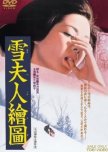
Portrait of Madame Yuki
3 oamenii au considerat această recenzie utilă
"Am I a coward?"
Portrait of Madame Yuki was a strange and twisted tale from Mizoguchi Kenji. Ostensibly about male domination, it felt more like a toxic relationship based on S & M.Yuki and her husband live apart most of the time, but have reunited over the death of the family patriarch. All that they have left is the estate she owns. Her husband has a mistress and is a wastrel with money. Yuki and her friend, Professor Kikunaka, decide to open her house as an inn in order for her to make money and become independent. The servants all believe she’s in love with the professor but their relationship always comes across as platonic, though his feelings may run deeper. Her husband isn’t afraid to bring his mistress home or even to force himself on Yuki. Regardless of how badly he humiliates her, Yuki can never tell him no. The professor tries to convince Yuki to divorce her husband, but the “demon” inside her won’t let him go even when he attempts to steal her home out from under her.
The version I watched of this film was difficult to follow at first as whoever/whatever did the translations completely messed up the English pronouns. Yuki was often referred to as him, her, or it. Plural pronouns were also used for singular people interspersed with singular ones in the wrong tense. It took a while to figure out if it was Yuki’s father or her husband’s father who died and whether it was the husband, Yuki, or himself the professor was talking about in a conversation. Other than that annoyance, the story itself was not a pleasant one. Despite the professor encouraging Yuki to be strong and stand up for herself and do the things that would make her life better, Yuki usually collapsed into a heap blubbering about how she was a coward, defeated, and not strong. Ultimately, no matter how badly her husband treated her, she could not resist whatever he did in the bedroom. Instead of embracing this part of herself or cutting ties with her husband, she chose to suffer. She always seemed to be slumped over, most likely because she was lacking a backbone.
This film was beautifully shot both indoors and outdoors. Mizoguchi certainly had an excellent eye for framing scenes. The acting was all very good, Kogure played Yuki as a pathetic creature ruled by her demons, Yanagi gave the husband a twisted sense of resentment toward his wife, and Hamada with her gum snapping duplicitous Ayako rounded out the reluctant ménage à trois. Based on the synopsis, I thought that Hamako would have a bigger role, but she was mostly relegated to the background after Yuki was introduced.
Portrait of Madame Yuki ended up being a depressing look at a woman who felt trapped by societal constraints and her own despised appetites. If you are looking for a tragic film with an open attitude toward sex (1950’s style) and are a fan of Mizoguchi’s work, this might be one to try.
*If suicide is a trigger for you, please do not watch this film. There is a lot of talk about suicide, a suicide attempt, and completion.*
13 June 2024
Considerați utilă această recenzie?

A Trip with Friends
3 oamenii au considerat această recenzie utilă
"The more you know, the more you see." I've seen enough.
A Trip with Friends is the third film of Kim Chang Gyun’s that I’ve watched and sadly it was the weakest. All three of his short films were made in 2018 abroad. This movie as well as Snapshot were filmed in Thailand. Like Snapshot, the characters visited various historical sights and tourist attractions.Kim Hee Jung, Seo Mi Jung, and Lee So Jung are theater and film studies majors at university. They decided to take a trip abroad to Thailand together. They eat, shop, and visit the elephants and later talk about the elephants. Over the next few days they take boat tours and go to the beach and visit other sights. They talk ad nauseam about acting and their love lives. Two of the girls have dreams about their professor of Arts in Images class. On the plane ride home, the third girl has her own dream about the professor.
I would worry that this was more of a Kim Chang Gyun Ego Trip rather than A Trip with Friends except that his professor Hur Dong Chul came across as a deadbeat in two of the girls’ dreams. During the dream sequences it became obvious how low budget the film was as there were people in the background yelling and babies crying. Much of the film was watching the girls take selfies together as they explored their surroundings. When they weren’t taking pictures, they were talking in their room, or at least two of them talked, the poor third girl spent most of her time trying to look interested during the mundane conversations. The two girls who did most of the talking also did what I call “hair acting”. They could not keep their hands out of their hair. They were constantly tussling, tossing, and flipping it.
I thought there were elements of Chang's other two films that were of interest, but I found A Trip with Friends tedious at best. I enjoyed seeing some of the places they visited, I just grew tired of watching them taking pictures of themselves. The dreams ended up being a little creepy. And the long, long, monologues about their lives held little interest for me. I don’t mind a bargain basement budget for an independent film, however, I need something to keep my attention. I wished I had stayed home instead of taking A Trip with Friends.
5 June 2024
Considerați utilă această recenzie?
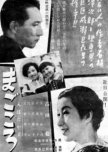
"When we feel bad, we cast a shadow over our children"
Sincerity was a film by Naruse Mikio adapted from a short story. The film had great potential but was marred by wartime censors. I would love to have seen what he would have done free from their interference. The film had lovely elements, two schoolgirls were friends despite coming from different economic classes. And their friendship wasn’t harmed by one girl being ranked higher than the other in their class, no competition or ugly jealousy. The young actresses were particularly engaging in their roles which helped enormously. I would have been happy if Naruse had created a slice of life with just their delightful story. But underneath the surface of their sunny friendship, lay a darker tale between the parents which threatened to upend their joyful existence and friendship.Tomiko and Nobuko both bring home report cards. Tomiko who lives with her mother, Tsuta, and grandmother is ranked first in her class. Her mother works as a seamstress to support them. Nobuko is reluctant to show her mom her report card as she has dropped to 10th in the class. Her father, Keikichi, isn’t concerned but her mom blames the new teacher. Keikichi says education is the mother’s job and maybe she is spending too much time away from the house. Late one night Nobuko’s mom brings up Tsuta and her past relationship with Kei. Nobuko overhears the conversation and shares it with Tomiko the next day. The girls’ reaction to the news and their parents’ reactions once they realize the secret is out leads to uncomfortable confrontations and conversations. And to add a bit more drama, Keikichi receives his draft notice.
Naruse managed to pack a lot of story into an hour though the ending was emotionally and narratively abrupt. The censors may have had a hand in that as everyone came together to send off the soldiers waving flags and cheering. Draft notices were met with happy congratulations. The film also began with the Greater Japan’s Patriotic Women’s Association meetings. I found it strange that Mrs. Asada, she was never given a name like everyone else, was scolded by her husband for spending too much time with these patriotic groups. In fact, he gave her a dressing down at one point that was particularly harsh, one of the harshest comments to a wife I’ve seen in a movie. Future soldier Keikichi was immune from criticism regardless of what he did.
The stars of the show were the child actresses, Kato Teruko and Etchan. They brought a wealth of emotions to their characters. Regardless of what was going on with the adults, Tomiko and Nobuko, showed great care for one and other. They were unable to be as close as they would have liked because they weren’t allowed to visit each other’s houses. Ostensibly this was because of their different economic classes, but the hidden feelings of the parents’ may have also had something to do with it. The parents wore their masks until the truth came out and then slipped them back on again, teaching the girls how to mask their feelings and pain as well.
There was a wonderful movie hidden inside Sincerity that was unable to fully blossom. Like a too early frost, it was nipped in the bud just as the depths of the secrets and story were about to be fully revealed and dealt with. If you are a Naruse fan, this is definitely one to try in order to watch as the young friendship was shaken by the adults’ deeply buried emotions and how the children fought to keep their friendship. All while the specter of war lingered in the background. I just wish the resolution had been fully explored instead of chopped off suddenly.
25 May 2024
Considerați utilă această recenzie?
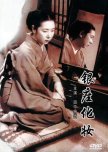
Be careful of men who tell you what you want to hear
Ginza Cosmetics was a bittersweet slice of life about a middle-aged single mother who worked as a bar hostess. Tanaka Kinuyo imbued the working mom with a quiet resilience as she faced whatever challenges and opportunities came her way.Yukiko looks at the world through clear eyes. She works hard to maintain her dignity and reputation while also acknowledging that being a hostess can’t last forever. Yukiko works with women her age and ones much younger. She takes Kyoko under her wing and steers her away from the post-work behavior of some of the other hostesses. Her son, Haruo, is a free-range child, though Yukiko’s landlords and neighbors keep an eye on the boy. Problems arise at the bar-a customer doesn’t pay which comes out of the hostess’ pocket and the bar itself is in financial trouble. Yukiko makes an effort to resolve the problems though she doesn’t always meet with success. She’s offered the chance to have a patron and through an act of fate also meets an available man. For the first time in a long time, she’s able to have an intelligent conversation and feels the pull of possible affection. Perhaps even a way out of the life she’s living.
Yukiko was an interesting character. She was well educated and well mannered. No mention was made of how she ended up in the bar. While others said she should find employment elsewhere, the employment reality for women may have precluded such an opportunity, especially during and right after the war. In contrast to the younger women who wore western dresses and heels at the bar, Yukiko dressed in a traditional kimono. She bore no shame for Haruo who was born out of wedlock, instead knowing it was the man who abandoned her when she became pregnant who had earned that shame. No matter what others did, she refused to supplement her income in after hours trysts with customers. The clock of time was ticking louder and she heard it, knowing she wouldn’t be able to remain a hostess forever. For the moment, she focused on earning a living in order to raise her son. When negative situations occurred, she kept her head and worked around them. No histrionics, no blame game, she just dug down a little deeper and held on. Though she believed most men were animals, she still never became so jaded that she wouldn’t reach out to help those in need.
Ginza Cosmetics had a similar theme as Naruse Mikio’s When a Woman Ascends the Stairs (1960). The latter was a deeper exploration of an aging hostess while the former was lighter look at the same subject. Ginza Cosmetics dealt with a woman who could have been more than a hostess listening to men as they drank, but the war and a patriarchal society left her with few options and she did what she had to do to survive and provide for her son. Her future was unknown but Tanaka’s Yukiko left no doubt she was more than prepared to face it with grace and dignity.
17 May 2024
Considerați utilă această recenzie?
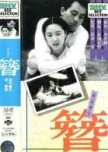
Ornamental Hairpin
3 oamenii au considerat această recenzie utilă
"The sun will show me the way"
While the world was falling into mortal turmoil and the stage was being set for a devastating war, Ornamental Hairpin found a group of people at a quiet inn nestled in the mountains where they could experience healing, friendship, and some moments of respite.Professor Katatae has come to the inn and hot springs for the summer to read. His ruminations are often ruined by traveling parties visiting the inn, making noise and hogging the masseurs. Emi and her friend Okiku are two such pilgrims enjoying themselves. The Hiroyasus have befriended both the professor and a Go playing grandfather staying there with his two grandsons. A young soldier, Nanmura, accidentally steps on a hairpin in the hot springs, extending his stay at the inn. While Katatae continues to grouse about the injury, Nanmura sees it as poetic. Now everyone is concerned whether the hairpin belongs to a young beautiful woman so as not to burst Nanmura’s poetic bubble, misunderstanding his meaning. Turns out the hairpin belongs to Emi and she returns to collect it and apologize. The group takes her in and she decides to stay there with them for the summer, much to the chagrin of a man she left behind in Tokyo.
Ornamental Hairpin was a simple, tranquil story, but not simplistic. Emi may have been the focal point of the story, but this was an ensemble cast of disparate characters who fell into an easy friendship while on vacation. They ate together, soaked in the springs, complained about the food, and even slept uneasily together with the snoring Professor and Grandpa keeping people up at nights. The grandsons Jiro and Taro whined about the sameness of the days but also took time to help Nanmura recuperate and exercise along with Emi. It is in Emi where the story transcended an uneventful vacation romp. She learned to do laundry and enjoyed spending time with the boys. Here where the sun could touch her face she began to long for something more in her life. She was looking to find meaning. While she was drawn to Nanmura and he to her, his life was back in the military and the coming war. When everyone else was preparing to leave, she remained behind, unsure of where she wanted to be and more importantly, who she wanted to be.
The acting was quite compelling. Saito Tatsuo as the Professor, brought the comic relief with his constant state of complaining. Especially when he railed against the noise then kept everyone up at night with his snoring. But it was Tanaka Kinuyo and Ryu Chishu who gave the heartfelt performances. Tanaka and Ryu were forces to be reckoned with in Japanese cinema. Ryu was an Ozu regular, but often as the father, older brother, or patrician friend. Tanaka excelled at playing women in more desperate circumstances. Here they were youthful and the romantic leads, even if the romance was not fully developed. They supported each other, gently and playfully, one time literally when she gave him a piggyback ride! They were soft and almost unrecognizable in these strangely easy-going roles. Tanaka conveyed the longing of her character for the sun on her face and freedom in her life beautifully.
Ornamental Hairpin was the ideal summer vacation for a group of people who became friends over dinner and soaking in the healing waters. Idyllic scenes of bubbling rivers, mountains, and trees gave way to reality calling again. A hint of melancholy also floated through the mists with the already present food shortages and war looming on the horizon. Emi, walking alone on the paths they’d traveled together had to discern the path ahead for herself. This film captured a cozy, funny, bittersweet moment in time for a group of strangers who became friends and faced uncertain futures.
12 May 2024
Considerați utilă această recenzie?

The Burmese Harp
3 oamenii au considerat această recenzie utilă
"The soil of Burma is red. So are the rocks."
The Burmese Harp was a WWII film based on a children’s book by Takeyama Michio from 1946. The book was written to help young readers come to terms with Japan’s defeat while demonstrating Buddhism’s emphasis on altruism. Music featured prominently with both the Japanese and British soldiers singing as well as the playing of the titular instrument. This was the kindest, gentlest war film I’ve ever seen as the Japanese soldiers came to grips with their country’s loss and hoping to see home again.A small group of Japanese soldiers are making their way through Burma (Myanmar) to Thailand when they are captured by the British. They learn the war has been over for three days. Capt. Inouye is unsure of what lies ahead of them but says they will face it like men and they will face it together. The Allies ask for a soldier to try and talk a group of holdouts on Triangle Mountain into surrendering. Inouye sends the harp playing Mizushima Yasuhiko and tells him to catch up with them at the Mudon POW camp 200 miles/322 km from where he will be after the mission. Unlike Inouye and his group of singing soldiers, the fanatical soldiers on the mountain don’t care that the war is over. They want to die for their Emperor and call Mizushima a coward. The Brits hit the hideout hard and Mizushima is the only one to survive. A traveling monk rescues him and nurses him back to health. While the monk is bathing in the river, Mizushima steals his clothes and later shaves his head so that he can make the arduous trip back to his men. Along the way he repeatedly comes across the decaying bodies of Japanese soldiers left where they lay. He buries a handful before continuing his journey. When he reaches the Buddhist monastery at Mudon he teaches a young boy a few new chords on the harp (Saung). The next morning he hears singing and finds the Allied hospital staff at the camp singing and praying over a Japanese soldier they have buried. Something inside of him fundamentally alters at this sight and instead of joining his men he turns back to bury the dead. Meanwhile, his men grow ever more concerned at his absence.
This film fell more into fable or fairytale than realistic war drama. Director Ichikawa showed the ravages of war and starvation in his excellent film Fires on the Plain (1959). While the book supposedly touched on Japan’s responsibility for the war and was critical of Japan’s militaristic actions and mindset, this movie veered away from those criticisms. Since the core concept of the film was for children--comfort women, the Nanjing Massacre, and dire reality for Allied prisoners in Japanese POW camps where 40% died was left out. This was a film about healing, friendship, and spiritual transformation in the face of defeat while not shying away from the staggering loss of life from war.
Music played an almost magical role for the soldiers in healing and binding the men together. It also brought out the shared humanity between the Japanese and Allied personnel. “Home, Sweet, Home” was sung by both groups and at one time all together. As Mizushima observed the scattered bodies with birds feeding on them, “O, Sacred Head Now Wounded” played in the background. In typical 1950’s fashion, the men sounded like a professional chamber choir when they sang and Mizushima’s battered saung provided the clear, dulcet tones of an orchestra’s multi-octave harp.
The soldiers longed for home and longed for peace. As they dreamed of returning to their lives in Japan they had no idea of the drastic changes ahead or that many places would be unrecognizable. Mizushima had been reborn while assisting the dead to rest in peace. He had to decide whether to stay in Burma and mend the past or go home and help rebuild his country. While this film may have shown a more idyllic version of humanity it couldn’t hide the horror and monstrous cost of war and didn’t try. This type of meditative, comforting film in the face of upheaval and how humans choose to react and grow was right up my alley. I thoroughly enjoyed The Burmese Harp. “…our work is simply to ease the great suffering of the world…to find the strength to create peace by one’s own example.”
2 May 2024
Home, Sweet, Home (For those too young to be familiar with it)
“Mid pleasures and palaces though we may roam
Be it ever so humble, there's no place like home
A charm from the skies seems to hallow us there
Which seek thro' the world, is ne'er met elsewhere
Home! Home!
Sweet, sweet home!
There's no place like home
There's no place like home!
An exile from home splendor dazzles in vain
Oh give me my lowly thatched cottage again
The birds singing gaily that came at my call
And gave me the peace of mind dearer than all
Home, home, sweet, sweet home
There's no place like home, there's no place like home!”
Considerați utilă această recenzie?

"Whatever happens, we'll come back for you"
Onoda: 10,000 Nights in the Jungle told the true story of one of the last Japanese holdouts after WWII. Japan surrendered on September 2, 1945. The war ended for Onoda Hiroo 29 years later on March 9, 1974. During his training as an intelligence officer he was told he had to survive at all costs and that "Whatever happens, we'll come back for you.” Onoda learned the hard way that the military was not as loyal to him as he was to the mission.“We will be back for you. We will be back. Whatever happens---survive!”
Late in WWII, Onoda Hiroo fails pilot school because he has a fear of heights and dying. He’s recruited to train as an intelligence officer and in guerilla warfare in December 1944. Before he leaves, his father (mother IRL) gives him a dagger to kill himself with rather than be captured should the need arise. When he arrives on Lubang Island none of the other officers will help him with his mission which was to disable the airstrip and port. Most of the soldiers are hungry, demoralized, and/or ill. The Americans take the island shortly after his arrival. Soon the only Japanese soldiers not dead or captured are Onoda and the three men he chose to work with him---Kozuka, Shimada, and Akatsu. Believing they must hold their ground until more Japanese forces arrive, they set up camp in the jungle and cause damage to the farmers’ fields in order to keep the locals afraid of them. They subsist on whatever they can find or steal, taking up residence in caves or homemade huts. The small group of holdouts refuse to believe the war is over and patiently wait for reinforcements.
“Try to change the way you see things”
Two different actors played Onoda and his second in command, Kozuka. They all performed admirably as the characters aged and learned to survive in the jungle and rely on each other. The film confined most of the shots to the men and their duties which displayed their arduous methods of staying alive. Bound by their limited outside contact, their lives seemed incredibly sad. They were completely isolated and separated from family and loved ones. As much as the film focused on the holdouts it would have been nice to gain the locals’ perspective of the killers in the hills and the fear they instilled for a time.
“They know that what is complicated and even incomprehensible, sounds true!”
My first thought when Onoda’s father handed him the dagger and told him, “Your body is the Fatherland. Do not let it fall into enemy hands,” was the Spartan mothers’ declaration to their sons, “With your shield or on it.” Ordered not to die and trained to unconditionally obey orders, unwilling to return home defeated, and determined to prove himself, Onoda’s psyche was trapped in a nightmare in the jungle of Lubang. The outside world and even loved ones attempted to convince Onoda that the war was over, but he could only see conspiracy theories everywhere he looked, convinced that Japan was still fighting. Eventually, he had access to newspapers, magazines, and a transistor radio but believed it was all an elaborate ruse to trick them. At some point, Onoda’s rigid obedience and views appeared to come across as an over-inflated sense of self. Why would the enemy go to such extraordinary lengths to trick one man? If he was that important they could have sent in a wave of soldiers to kill him or just bombed the jungle. Onoda had a high level of cognitive dissonance as he clung to his beliefs in the face of harsh opposing facts.
“What if we killed people we’re no longer at war with?”
Onoda and his men were resourceful and resilient. The youngest left after nearly 5 years and another was killed after almost nine. When the second in command was killed after 27 years of holding out, it seemed to chip away at Onoda’s confidence. Despite their incorrect assessments, Onoda and his men were a product of their training and propaganda. They truly believed they were serving the greater good by holding their position on the island. It took as much determination as denial to be separated from family and friends, to live on roots and fruit often with only rudimentary shelter for nearly three decades. In 1974 a Japanese adventurer discovered Onoda and befriended him. The young man caused Onoda an existential crisis as the holdout could no longer deny that Japan and the world had changed. The military bore responsibility as well. The loyal soldiers killed 30 inhabitants over the years. Two of the four died pointlessly and Onoda lost 30 years of his life because no one cleaned up the mess they created. These soldiers were imbedded on islands in the last months of the war when the writing was on the wall. VE Day occurred not long after Onoda was stationed on Lubang and Japan surrendered in August of 1945. All it took was for Onoda’s superior to come back for him. Unfortunately, for Onoda, his men and the people of Lubang, it took nearly 30 years to do so.
30 April 2024
Considerați utilă această recenzie?
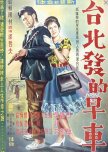
Early Train from Taipei
3 oamenii au considerat această recenzie utilă
"There will be no end to the sorrow"
Early Train from Taipei is one of about 200 Taiwanese language films to have survived that were made between 1955-1970. This film was popular during its day and has been restored with only a few flickering skips still evident. There was no doubt what type of film this was going to be during the intro when an artist tells his friend there is a sad story behind two disparate paintings of the same woman. While I can appreciate its place in history, the endless melodrama and flat characters caused my interest to wear thin by the end.Siu Lan and Hue Thao are two beautiful people who live and work in the countryside and love each other. Siu Lan’s father died leaving her ailing mother in deep debt. When the creditor comes calling demanding payment, Siu Lan asks a friend to find her work in Taipei. The work turns out to be as a taxi dancer. Within a couple of weeks, she’s sending significant money to her mother to help pay down the debt. Hue takes the train to visit her but derides her for her choice of employment implying she needs to go home. He leaves her a note and catches the train, hiding from her when she follows him to the station. Siu Lan attempts to quit but her boss does not handle her resignation well, and from there on her life takes a decided turn for the worse.
A heavy-set couple back home brought comic relief whenever they encouraged Hue to visit Sui Lan. But that laughter was soon drowned in a torrential flood of tears. Tears of guilt. Tears of loss. Tears of sorrow and anger. Tears of hopelessness and remorse. And tears of pain. The last third of the film was a relentless parade of pain. With each new dilemma the catastrophes felt more like manufactured drama desperately trying to force the audience to cry than from any organic developments to the story. Siu Lan and Hue were tortured over and again. The lyrics to the songs implied that Siu Lan had been enticed by greed and the big city lights, but she appeared to remain the same lovely girl she always had been and was only working in the city to pay off her mother’s debts. She would have preferred to stay in the country with Hue and her mom but her innocence was exploited by the cruel club owner. Whatever lessons fate was trying to teach her for having sought to make money in the city, I’d say it was overkill.
I did like that the connections between the women were strong. Siu Lan’s friend, Suat Gno, stayed loyal to the end and felt deep regret over finding Siu Lan a job at the club. Suat Gno also cared for Siu Lan’s mom when Siu Lan was unable to. It was good to see Ko Yu Min, veteran of numerous kung fu flicks, play the defense attorney (paid by Suat) exasperated with Siu Lan’s martyr complex. His perfectly timed eyeroll expressed my sentiments exactly. It was difficult to watch this woman who only had good intentions be victimized over and over again. First by the lascivious men in charge of the club and then later by the justice system. Lastly by herself. Taiwan was going through a growth faze with young people heading to the cities for better jobs. Apparently, this melodramatic tale connected with audiences and was quite popular. The Last Train from Kaohsiung was a successful prequel to this film and there was possibly at least one sequel to Early Train. I would like to find the sequel to see if they saved Siu Lan and Hue Thao not only from their emotional damage but also the physical damage they endured.
Early Train from Taipei was a love story between two people torn apart by the evils of the big city. Beauty and “greed”, even if used for protecting the family were punished like using dynamite on a gnat. I appreciated this time capsule for what it was and am grateful it was saved and restored for future generations to see. Despite that, I struggled with the almost gleeful degradation of Siu Lan and Hue Thao as a cautionary tale for young people desiring to leave home for the promise of a better life in the city.
17 April 2024
Considerați utilă această recenzie?

 54
54 191
191 11
11






















